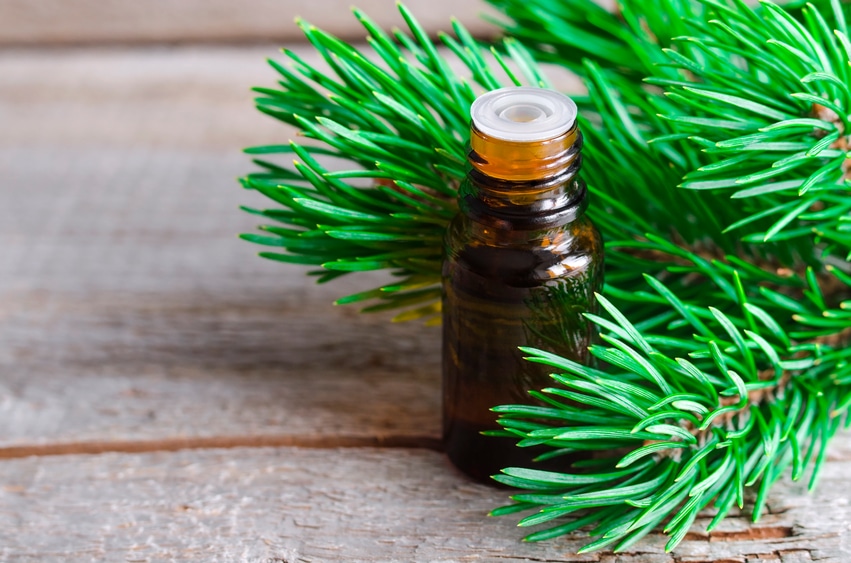
A cough is a sudden noisy expulsion of air from the lungs that clears the air passages; a common symptom of upper respiratory infection, sinus infection, common cold, allergies, pneumonia, bronchitis or tuberculosis. You can suddenly experience a cough when you are exposed to smoke and irritating substances. You can manage the cough naturally with essential oils for cough.
Table of contents
Normal cough will resolve without treatment. A persistent cough interrupts sleep, it is exhausting and it presents the following symptoms: throat irritation, fever, post nasal drip, nasal congestion and sneezing. You have to seek medical assistance, if your cough is tenacious.
Essential Oils for Cough Remedies
Essential oils can boost the effectiveness of your cough remedies and even give you new ones. Here is a list of the most resourceful essential oils for cough and cold. So are these essential oils help to ear infections and sore throat
- Eucalyptus: It is expectorant, anti-infectious, antifungal, antibacterial, anti-rheumatic and antiseptic. It soothes coughs, cold and flu symptoms. It boosts the immune system. This oil is suitable for topical application, diffusion and direct inhalation. Add one part of eucalyptus oil to four parts of carrier oil before use.
- Myrrh: It is expectorant, antimicrobial, anti-inflammatory, antifungal, antiseptic, antiviral, astringent and antispasmodic. It relieves cough, bronchitis, and distress caused by skin conditions. Myrrh is generally considered safe to use through direct inhalation, diffusion and topical application.
- Rosemary: It is antibacterial, antifungal, expectorant, decongestant, restorative, and antispasmodic. It reliefs cough, cold and flu and alleviates respiratory discomfort. Add equal parts of rosemary oil and carrier oil before application.
- Peppermint: It is antibacterial, anti-inflammatory, antiviral, anti-carcinogenic, antispasmodic and analgesic. It helps treat cough, viral and fungal infections. The oil has to be diluted with carrier oil before direct inhalation, topical application or diffusing. Younger children and people with high blood pressure should avoid peppermint oil.
- Lemon: It is antimicrobial, antifungal, antibacterial, anti-inflammatory, astringent, anti-rheumatic, and antispasmodic. Lemon oil is excellent for circulation improvement and cough treatment. In aromatherapy, it uplifts the mind and body while discharging negativity and promoting happiness. Mix equal proportions of lemon oil and carrier oil before diffusing, direct inhalation or topical application.
- Sandalwood: It is antiviral, astringent, immune stimulant, bronchial dilator, antiseptic and calming. It combats cough and viral infections. The oil is regarded safe and non-irritating, but you have to dilute it with carrier oil before direct inhalation, topical application or diffusion.
- Frankincense: It is expectorant, antifungal, antioxidant, anti-inflammatory, astringent and analgesic. It is useful for treatment of cough, sore throat, pneumonia and viral infections. The oil is safe for direct inhalation, diffusion and topical application when diluted with an equal amount of carrier oil.
- Lavender: It is antimicrobial, antibacterial and antifungal.Its therapeutic properties help treat respiratory tract disorders. Lavender oil is well thought-out as safe to be applied undiluted for diffusion and direct inhalation. However, it has to be diluted with carrier oil before applying to the skin.
- Tea Tree: It is expectorant, antimicrobial, antifungal, antibacterial, antiviral and stimulant. It is useful for treating whooping cough, cold sores, flu and bronchial congestion. Dilute tea tree oil with carrier oil before topical application.
- Thyme: It is an expectorant, antiseptic, antibacterial, and fungicidal. Its healing properties fight against cough, congestion and viral infections. Dilute thyme essential oil with carrier oil before topical application, direct inhalation and diffusion.
Methods of Applying Young Living Oils for Cough
Knowing the different types of natural oils for cough treatment is the easy part. The real challenge is identifying the correct method to use.
Diffuser

Applying essential oils through diffusion is the easiest, most pleasant, and most effective method. It requires minimal action; all you have to do is add a few drops of diluted essential oil for cough in a diffuser and then turn on the device. It will disperse ultra-fine particles of the oil into the atmosphere of your room.
Direct Inhalation

Inhale using a tissue sprinkled with two to four drops of essential oil or inhale from the bottle. Wave the bottle under your nose approximately half an inch from your nostril when inhaling from the bottle. You should move the bottle closer to your nostril depending on the strength of the scent.
Massage

You can use natural oils for cough to make massage oil. Use the oil to massage your chest and back. This should help you treat cough and other respiratory infections.
Bath

Dissolve five drops of essential oil in about four ounces of Epson salt, whole milk or dried milk powder. Add the mixture to your bathtub and fill with warm water. Then soak your body for at least ten minutes to ease respiratory infections.
Essential Oil Recipes for Cough
You can improve the effectiveness of doterra oils for cough by blending them with carrier oils and other useful ingredients.
Recipe #1: Respiratory Rub
Ingredients:
- 1 drop of thyme essential oil
- 2 drops of tea tree essential oil
- 2 drops of pine essential oil
- 1 ounce of jojoba oil
Directions: Place jojoba oil in a clean glass bottle, add the essential oils, seal the bottle and shake gently to blend. Massage the mixture over your back and chest as required, to help breathing, clear excess mucus and cough.
Recipe #2: Easy Breathing Blend
Ingredients:
- 1 drop of rosemary essential oil
- 3 drops of eucalyptus essential oil
- 2 drops of ginger essential oil
- 1 ounce of coconut oil
Directions: In a clean glass bottle, add the oils to the carrier oil and shake to blend. Apply the blend to your back, throat and chest and repeat as necessary.
Recipe #3: Diffuser Breathing Blend
Ingredients:
- 4 drops of frankincense essential oil
- 12 drops of eucalyptus essential oil
- 6 drops of Cyprus essential oil
- 10 drops of lemon essential oil
- 4 drops of spruce oil
- 8 drops of thyme essential oil
- 6 drops of myrrh essential oil
- 8 drops of laurel oil
Directions: Pour the oils into a small, dark-colored glass bottle. Gently shake the bottle to mix the oils. Add a few drops of the mixture to your diffuser; then run your diffuser as necessary to improve breathing and relieve cough.
Recipe #4: Chest Congestion Blend
Ingredients:
- 2 drops of thyme essential oil
- 3 drops of eucalyptus essential oil
- 1 drop of pine essential oil
- 1 teaspoon of jojoba oil
Directions: Add the essential oils and jojoba oil in a clean glass bottle and shake gently to blend. Then use the mixture to massage your back and chest.
Recipe #5: Chest Rub for Coughs
Ingredients:
- 1 drop of tea tree essential oil
- 2 drops of thyme essential oil
- 2 drops of cypress essential oil
- 3 drops of ginger essential oil
- 3 drops of cedarwood essential oil
- 2 ounces of jojoba oil
Directions: Place jojoba oil in a clean glass bowl, add the essential oils and blend. Then use the mixture to massage your throat, neck, and chest as needed.
Safety Concerns
If you prepare the right mixture, essential oils for cough can be very safe. There are certain natural oils that can be abrasive to the skin when they are not diluted properly.
To avoid unnecessary incidents, you should get the dilution right.
Alternatively, you can use organic products since they are safe, especially when you are using them with children. You should always consult an expert or a physician, if you are not sure of what you are doing.
Sources and References
- MedlinePlus Cough
- National Lung, Heart and Blood Institute What Is Bronchitis?
- PubMed Health Aromatherapy and Essential Oils
- BetterHealth Whooping cough









Eucalyptus is the best! Even my mon used it with us when we were children! Thank you for some blends recipes
Do you think I can use these recipes with my children, aged 5 and 8?
Sure you can. Just make the solution with a bigger amount of carrier oil and don’t forget to make a patch test to check for allergies.
Hey there! Sure you can. But keep in mind that for small children you need to make a weaker solution, since the oils are rather strong, and always conduct a patch test before using them to check for allergies.
It all seems like good stuff, I was considering buying a diffuser and use oils on regular basis for prevention…but I have a pet around the house, do you think she will be fine with that?
It is a popular fear but it is not backed up with research. Just clean your hummidifier regularly and you should be fine!